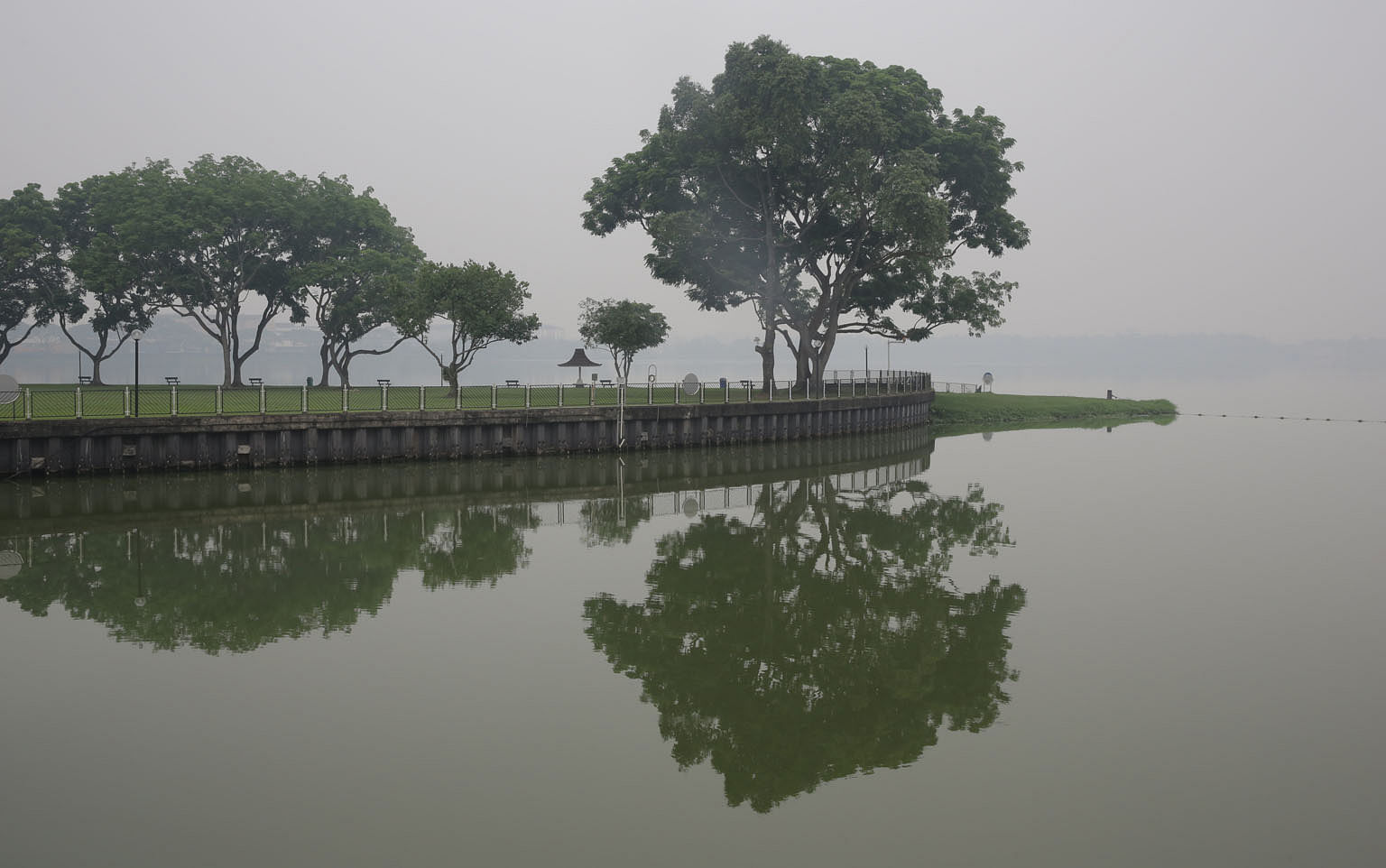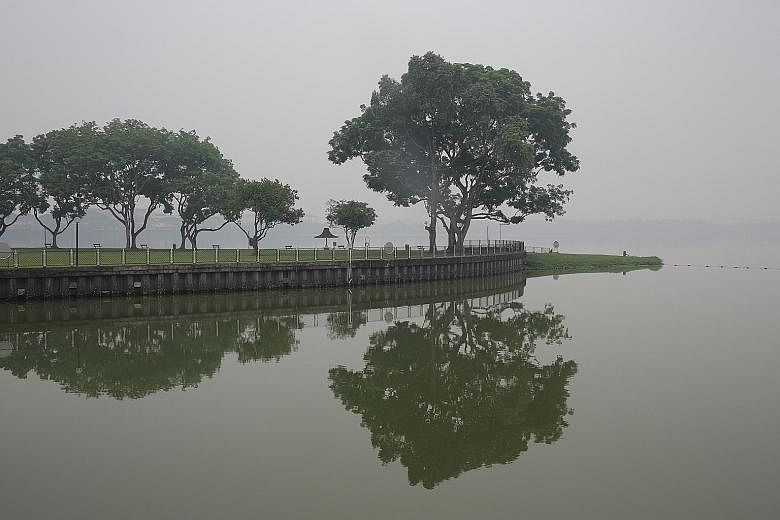To solve the problem of the haze afflicting Singapore, Indonesia and Malaysia, extraterritorial action is needed to quench the forest fires in Indonesia that are generating the haze. A cross-border solution is a necessary answer even if it raises questions of national sovereignty.
The Singapore Government should implement laws that can be enforced beyond the Republic's borders, similar to United States laws such as the Foreign Corrupt Practices Act (FCPA) and the Foreign Account Tax Compliance Act (Fatca).
FCPA penalises companies and businessmen who bribe officials of countries besides the United States, while Fatca tackles tax evasion by US taxpayers living outside the US.
Since Fatca was implemented in the late 1970s, many companies have been fined for violating this law. Interestingly, the majority of the companies that paid the biggest fines for violating Fatca were non-US firms, such as Siemens of Germany.
In 2008, Siemens paid the US government US$800 million in fines for bribing officials in many countries including China, Vietnam, Russia, Mexico and Israel.
One may ask, what right does the US government have to fine a German company like Siemens for bribing officials in China?
Any non-US company is liable under FCPA as long as it has some US connection. For example, a non-US firm listed in the US or with offices and factories in the US can be punished if it bribes officials of a foreign country.
Even a minor American connection renders a non-US firm liable to FCPA, such as an e-mail passing through a server in the US or US-dollar funds passing through a US bank.
Like the US, the Singapore Government should punish foreign companies implicated in the haze, by leveraging on any Singapore connection of these foreign companies, such as their bank accounts, assets, offices and factories in Singapore.
Given that Indonesia has a poor reputation when it comes to corruption, it is possible that companies guilty of causing the haze bribed Indonesian officials to be allowed to burn Indonesian forests. Hence, a Singaporean version of a foreign anti-bribery law might be an appropriate tool in the fight against the haze.
Perhaps the Singapore Government can create a transnational law similar to Fatca to freeze the funds or financially penalise foreign companies guilty of creating the haze.

Under Fatca, financial companies around the world are required to report to the US Internal Revenue Service (IRS) on accounts of US taxpayers in order to prevent tax evasion. The financial institutions, including non-US ones, that fail to do so face a 30 per cent withholding tax penalty on their US income.
More than 80 countries, including China and Singapore, as well as thousands of banks around the world, have agreed to cooperate with Fatca. It is a testament to the negotiating skills of the US government that it persuaded so many countries and non-US financial institutions to cooperate with this US law.
The US government was able to get on board so many foreign governments and financial institutions because it managed to convince them it was in their interest to do so. For example, a country that cooperates with
Fatca would be able to obtain from the US government information on the tax evasion activities of that country's citizens in the US.
Similarly, the Singapore Government should persuade the governments of other countries, including Indonesia, that it would be to their benefit to provide information on companies responsible for the haze.
Some critics may complain that the US is resorting to transnational laws like Fatca and FCPA to act as the world's policeman in a form of US neo-imperialism. Likewise, if the Singapore Government uses transnational laws to fight the haze, some quarters in Indonesia may accuse Singapore of interfering in Indonesia's internal affairs.
A Straits Times article by Professor S. Jayakumar, a former Singapore law minister and foreign minister, and Ambassador-at-large Tommy Koh, cite the principle that a state like Indonesia has the responsibility to ensure that activities within its jurisdiction do not damage the environment of other states.
Some Asian politicians have criticised the US for interfering in the affairs of other nations by imposing US values like democracy. But even China is extending the long arm of the law to other countries.
In March, the Chinese government announced its international anti-corruption plan to track down and bring back corrupt Chinese fugitives from overseas. This plan is named Skynet, and one of the Chinese officials caught under Skynet is Li Huabo, a former Chinese official who was living in Singapore. In May, Li was extradited from Singapore to face corruption charges in his home country.
Even the British government has said it will more proactively enforce the UK Bribery Act that penalises British firms for committing bribery outside the UK.
Countries like the US, China and Britain are extending their legal teeth to other countries. Welcome to globalisation.
•The writer is a Hong Kong-based journalist last with the South China Morning Post.

